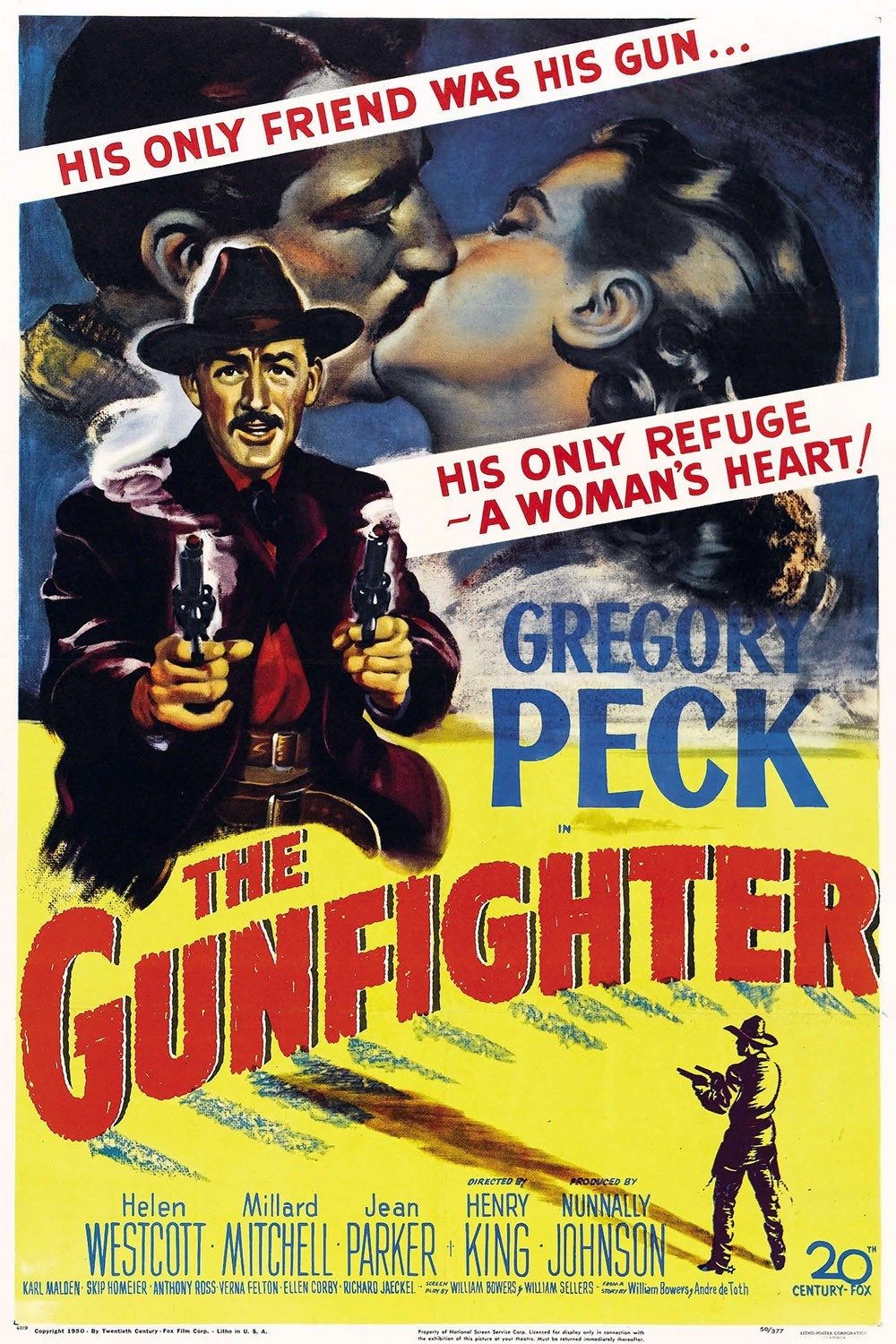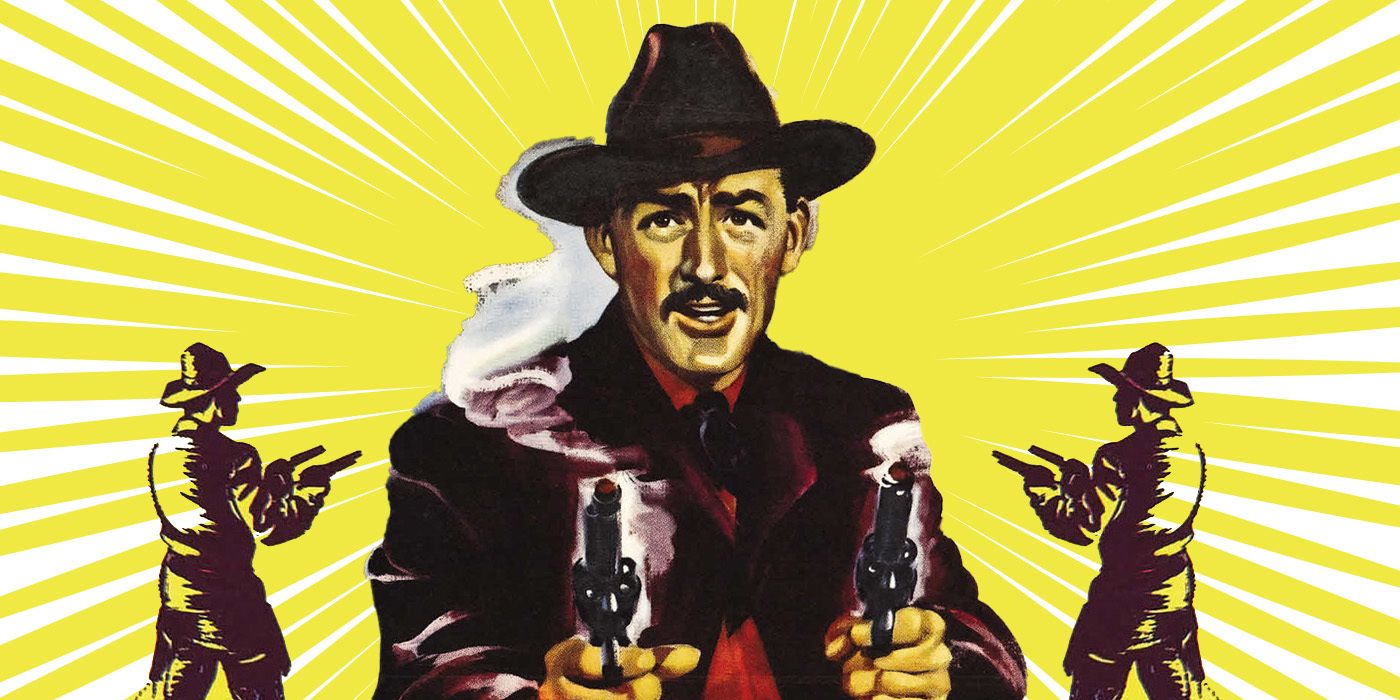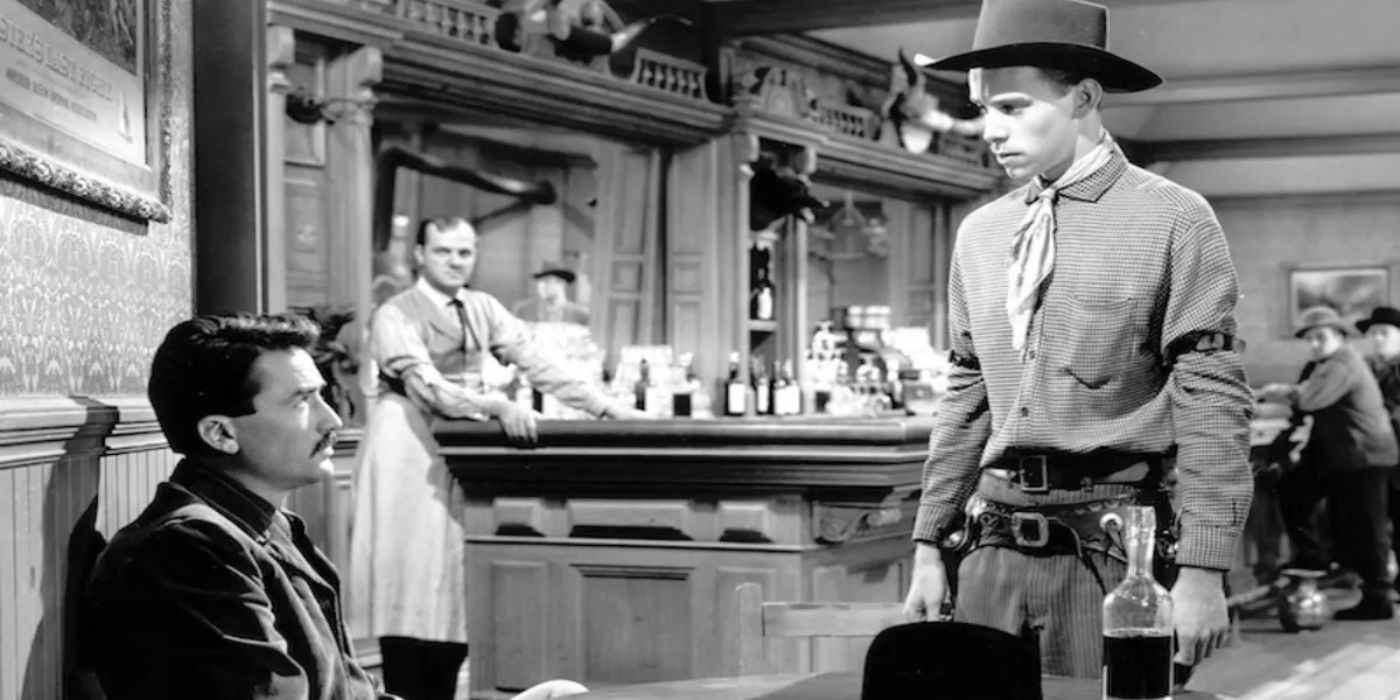The Big Picture
- Gregory Peck's portrayal of Jimmy Ringo in The Gunfighter showcases his range as an actor, demonstrating restraint and nuance in a genre known for more over-the-top characters.
- The film challenges Western stereotypes by focusing on Ringo's inner struggle and his desire for redemption, rather than traditional gunfights and action-packed adventures.
- Despite his efforts to leave his violent past behind, Ringo's actions have consequences, ultimately leading to a tragic and thought-provoking ending that highlights the cycle of violence in the Western genre.
When reflecting on Gregory Peck's extensive career, a few films like Roman Holiday come instantly to mind. The biblical epic David and Bathsheba, the swashbuckling Moby Dick, both versions of Cape Fear, and the iconic horror film The Omen all made their mark in movie history. He's also played villains such as Nazi scientist Dr. Josef Mengele in The Boys in Brazil, and heroes like Catholic priest Hugh O'Flaherty in The Scarlet and The Black. Of course, his most famous role comes from the 1962 feature film adaptation of Harper Lee's To Kill A Mockingbird, where he wowed audiences everywhere as Atticus Finch. His powerful performance has since been hailed as one of the greatest in cinema, and for good reason. In every way, Peck transforms himself into the physical embodiment of the ideals that Finch stood for, ripping the character straight from Lee's page and immortalizing him on screen.
Despite To Kill A Mockingbird being Peck's most notable work, there is another compelling character study in his filmography worth exploring. Throughout his career, Peck starred in exactly 11 Westerns, though only two of them were directed by the same man, Henry King. The first of their Western collaborations (they'd make six films together in total) came out in 1950 and starred Peck as Jimmy Ringo, a character based loosely on the historical Johnny Ringo. (Yes, the same Johnny Ringo who Michael Biehn plays in Tombstone, but this is a vastly different version of the gunslinger.) As one of Peck's highest-rated Westerns, The Gunfighter is a compelling picture that takes a different approach to the genre. Though the film's poster erroneously claims that "his only friend was his gun," that couldn't be further from the truth.

The Gunfighter
Notorious gunfighter Jimmy Ringo rides into town to find his true love, who doesn't want to see him. He hasn't come looking for trouble, but trouble finds him around every corner.
- Release Date
- August 21, 1950
- Director
- Henry King
- Cast
- gregory peck , Helen Westcott , Millard Mitchell , Jean Parker , Karl Malden , Skip Homeier , Anthony Ross , Verna Felton
- Runtime
- 85 Minutes
- Main Genre
- Western
- Writers
- William Bowers , William Sellers , André De Toth
What Is 'The Gunfighter' About?
The film follows Ringo at the end of his long and notorious career as a gunfighter (though calling it a career would be generous), as he rides back into the town of Cayenne to make peace with his past. Along the way, Ringo kills a young man named Eddie (Richard Jaeckel), who had taunted him into action after going for his gun first. After "Mr. Frazzlebottom" (as Eddie calls him) ends the young man's life, he's pursued by Eddie's three unnamed brothers (Alan Hale, Jr., David Clarke, and John Pickard) who are coursing for revenge. Even after jumping on these men, taking their guns and horses, Ringo lets them go, knowing they'll likely pursue him further. Of course, they do, and that's where the story really begins.
What makes The Gunfighter especially compelling is the way that Peck plays Jimmy Ringo. While most gunfighters are generally hard-boiled loner types reminiscent of Clint Eastwood, Peck teeters the line. Rather than playing Ringo as a careless, over-the-top troublemaker (not unlike how Johnny Ringo was portrayed in Tombstone), he plays everything very cool. Peck's Ringo doesn't get actively angry, shows genuine remorse, and practices incredible restraint — similar to Peck's famous To Kill A Mockingbird character. While he's lived a life of violence, you'd hardly know it by the way he holds or conducts himself. It's only his name and reputation that does him in.
The nuance Peck provides for Ringo is startling, as the actor's generally mellow demeanor fits perfectly with the type of story The Gunfighter sets out to tell. Though his character here is vastly different from his subsequent works, it shows just how well-rounded and impressive a talent like Peck can be. With great material to work from (the screenplay was nominated for an Academy Award in 1951) and an exceptional director in Henry King, it's no wonder that The Gunfighter attracted Peck to the project. He even deemed it as one of the highlights of his own career, which is high praise for a man who disliked many of his own movies.
Interestingly, John Wayne was originally meant to star in the film, but due to some behind-the-scenes drama, the script was sold to Fox instead, who cast Peck in the role. Eventually, the Duke starred in the 1976 picture The Shootist, which was his final film that drew inspiration from Peck's classic. But after nearly 75 years, it's impossible to imagine anyone else as Jimmy Ringo other than Gregory Peck. He was perfectly suited for the role and was even named "Top Western Star" by the Reno Chamber of Commerce in 1950, which understandably angered Wayne. Nevertheless, it solidified Peck's performance as one of the greats in the Western genre, reminding us why The Gunfighter is considered one of the best examples of a classic Western to date.

Why Hasn't Steven Spielberg Made a Western?
The directing auteur still has worlds to conquer.'The Gunfighter' Challenges Western Stereotypes on Violence
For a movie called The Gunfighter, it's strange that Ringo doesn't traditionally duel the majority of his enemies. Only Eddie is gunned down by the Western hero, and only in self-defense. What makes this Western exceptional is how the tale is structured. Rather than giving Ringo an active goal, such as protecting a defenseless town or robbing a train, his entire arc is predicated on his ability to just sit and wait. As the townsfolk watch Mac's (Karl Malden) saloon, Cayenne erupts as everyone hopes to catch a glimpse of the gunslinger, gossiping about his intentions. In many ways, Ringo is only a semi-active observer of the town's own craziness. Though on paper this might make Ringo come across as a less effective or exciting protagonist, the opposite rings true as he engages with and listens to those around town.
One fine example is Ringo's encounter with the young Tommy (Kim Spalding) at the bar. Tommy and his wife's recent nuptials, and purchase of some workable farmland, are honorable to a man like Ringo, who has never had a consistent home as an outlaw. Inspired by the young couple, Ringo makes this same proposal to his estranged wife Peggy (Helen Westcott), hoping to take her and their son Jimmy (B.G. Norman) somewhere safe to settle down and leave his former life behind. Even though it's implied that Ringo came to town with hopes of taking Peggy and Jimmy away, he never thought a life like Tommy's was possible for a man like him. Tragically, he's right.
What's even more tragic is that Ringo could've had this life once. We see glimpses of the man Peck's character could have become through Ringo's best friend, Mark Strett (Millard Mitchell), who was successful in his transition from gunfighter to law-abiding citizen. But Mark goes beyond law-abiding, upholding it as well, having fastened himself as the Marshall of Cayenne. Because of his troubled past, Mark refuses to carry a weapon, but, as Ringo points out, he never needed one to scare his enemies. This certainly rings true by the end, only further challenging the titular archetype and making us wish that Ringo, too, had felt the outlaw life years ago.
Likewise, Ringo's interaction with the women of Cayenne, who wish to see him hanged, is a delightful addition to The Gunfighter that keeps things fresh and interesting. As Ringo questions their stance on his outlaw-ish presence, they explain to him (not knowing they're talking to Jimmy Ringo himself) that he's nothing more than a criminal in need of some severe capital punishment. While other inferior gunslingers may have erupted at this (including the Tombstone's more accurate depiction of Ringo), Peck's Ringo smiles and concurs, recognizing his past sins with hopes of making amends for them. Ringo does this primarily by waiting around for Peggy, hoping that her love for him will be enough to wash away his evil deeds and help him start anew.
What Does the Ending of 'The Gunfighter' Mean?
The biblical adage "an eye for an eye" and "he who lives by the sword, dies by the sword" ring truest in a Western like The Gunfighter. Ringo's quest, which is more of a pilgrimage than an action-packed adventure, comes after his realization that the way he's living will likely contribute to the way he'll die. With that in mind, he hopes to be the husband and father he'd failed to be for so long. But, Ringo's actions have consequences. Though it looks like Ringo will make it out alive in the end (Eddie's brothers are apprehended before they can assassinate our hero), he's shot in cold blood by Hunt Bromley (Skip Homeier), an aspiring gunfighter with a chip on his shoulder.
With some of his final breaths, Ringo curses Bromley to live the same life he did. Asking Mark not to arrest or hang the boy, he explains that, as the man who killed Jimmy Ringo, Bromley will now be hunted by wannabe gunfighters hoping to throw their hat in the ring. Unable to escape the curse himself, Ringo passes it on to another and so the cycle of violence continues. Yet, though Ringo dies, his legacy lives on, and not just his legacy as a gunfighter. It's in his death that Peggy publicly reveals herself as Mrs. Jimmy Ringo, with their son Jimmy proudly displaying himself as the gunslinger's only son. As the mourners sing "Rock of Ages" at Ringo's funeral, the whole town has seemingly come to accept the gunfighter's confession, ushering him into his eternal redemption.
Most classic Westerns conclude with a cowboy, outlaw, or lawman riding off into the sunset after a job well done. It's something of a cliché, to be sure, but one that most of us long for in the end. While Ringo passes on, an unknown rider makes his way across the screen and into the setting sun, closing the book on The Gunfighter. Whether this was another outlaw, a lawman, some sorry soul looking for redemption, or even the spirit of Jimmy Ringo himself, one cannot say. But, it's clear that the titular gunfighter lives on beyond his mortal constraints. While he may have learned too little and too late that violence only begets more violence, we can only hope that those around him learned the lesson for themselves.
If you haven't seen The Gunfighter, it's a lesser-known classic that puts the works of other Western heroes to shame. Though Gregory Peck may not be commonly associated with the landmark genre, his 1950 triumph proves just as powerful, delightful, and intentional as High Noon, Rio Bravo, The Searchers, or Shane. As the Western slowly creeps back into Hollywood's toolbox through modern interpretations, remakes, and revisitings, it's clear that nothing beats the movie business's Golden Age of Western filmmaking. Though other pictures may be more exciting, there are few films that tower over the likes of The Gunfighter.
The Gunfighter is available to stream on Peacock in the U.S.


